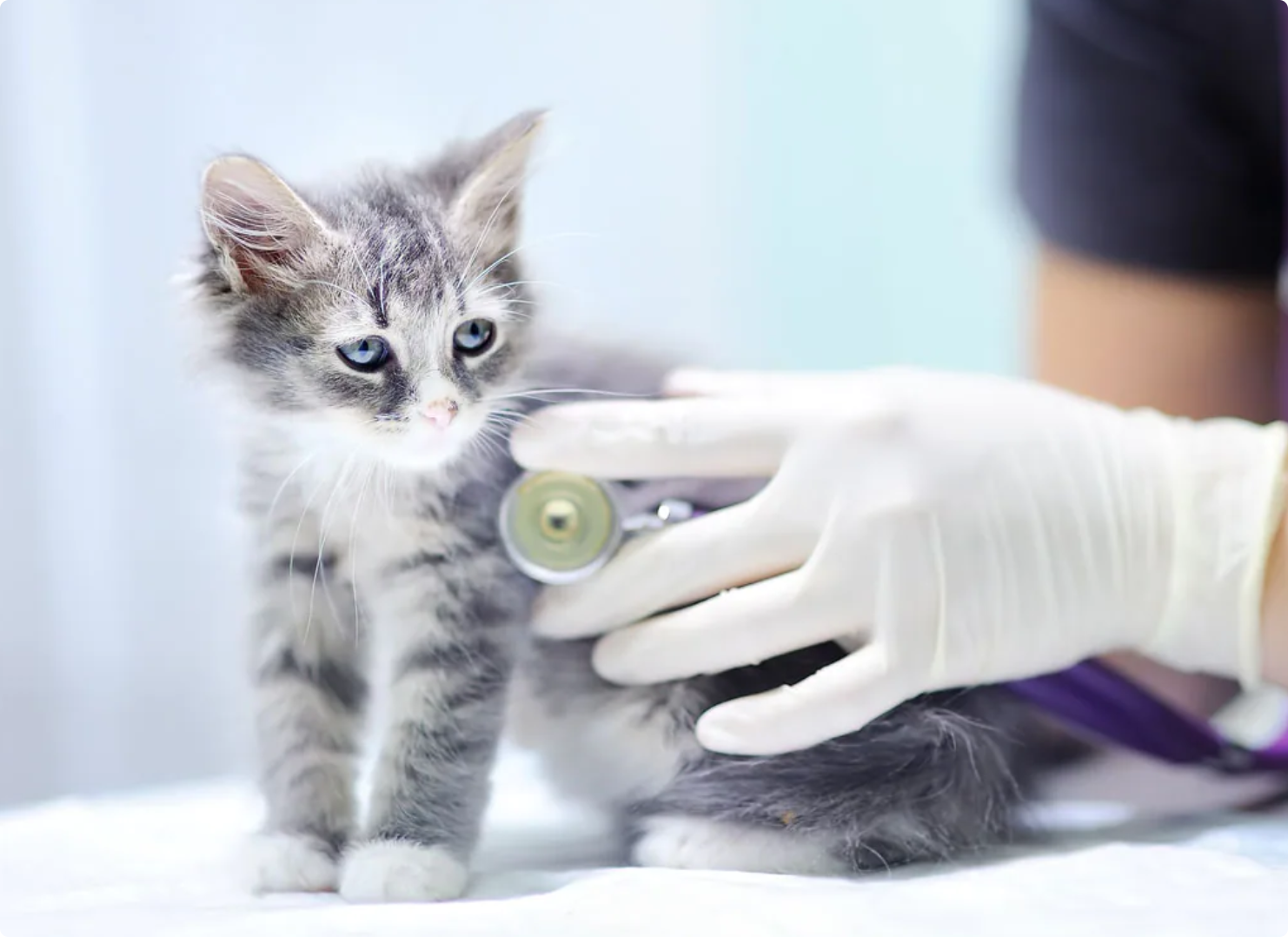
Essential Medical Care For Your Pet Cat Health!



Essential Medical Care For Your Pet Cat Health!
Regular professional veterinary care is essential to the health of your cat.
Preventive veterinary care can add years and quality to the life of your cat.
Your cat should see the veterinarian at least once a year for an examination and annual shots, and immediately if she is sick or injured.
Your veterinarian and staff is a team whose main goal is to keep your cat happy, healthy, and in a loving relationship with you for as long as possible.
Health and Welfare:
Individual cats show pain and suffering in different ways, a change in the way a cat behaves can be an early sign that they are ill or in pain, also cats who are insecure or stressed can also become unwell as a result.
Before deciding to buy/acquire a cat, always make sure you find out what health and behavior problems they have, or may be prone to, for instance as a result of their breed, how they have been bred, and how they have been cared for.
Always check with a vet if you are unsure about anything.
Health checklist:
![]() Check your cat for signs of injury or illness every day, and make sure someone else does this if you are away, if you suspect that your cat is in pain, ill or injured, go and see your vet immediately.
Check your cat for signs of injury or illness every day, and make sure someone else does this if you are away, if you suspect that your cat is in pain, ill or injured, go and see your vet immediately.
![]() You may need to get your cat spayed or snipped, this should be done before your kitten is four months old and talking to your vet will explain what’s involved and if it’s a good idea for your specific circumstances.
You may need to get your cat spayed or snipped, this should be done before your kitten is four months old and talking to your vet will explain what’s involved and if it’s a good idea for your specific circumstances.
![]() Take your cat for a routine health check with your vet at least once a year. It’s a good chance to ask for advice about things you can do to protect your cat’s health, such as essential vaccinations and treatments to control parasites (fleas and worms).
Take your cat for a routine health check with your vet at least once a year. It’s a good chance to ask for advice about things you can do to protect your cat’s health, such as essential vaccinations and treatments to control parasites (fleas and worms).
![]() Only use medicines that have been prescribed for your individual cat – human and dog medicines can be very dangerous to cats.
Only use medicines that have been prescribed for your individual cat – human and dog medicines can be very dangerous to cats.
![]() Make sure your cat’s coat is kept in good condition by regular grooming which is also a good way to bond with your cat if they enjoy it.
Make sure your cat’s coat is kept in good condition by regular grooming which is also a good way to bond with your cat if they enjoy it.
![]() Be ware of signs of poisoning that includes vomiting, diarrhea, dehydration, hyperactivity, high temperature and blood pressure, abnormal heart rhythm, and tremors and head to your veterinarian straight away if you notice any of these symptoms.
Be ware of signs of poisoning that includes vomiting, diarrhea, dehydration, hyperactivity, high temperature and blood pressure, abnormal heart rhythm, and tremors and head to your veterinarian straight away if you notice any of these symptoms.
Your Kitten’s Routine Examinations:
When you get a kitten, it’s important to establish a relationship with a veterinarian right away. Regular visits should begin immediately.
During your kitten’s routine examinations, your veterinarian will:
![]() Listen to her chest for heart and breath sounds.
Listen to her chest for heart and breath sounds.
![]() Feel her abdomen, and check the coat condition.
Feel her abdomen, and check the coat condition.
![]() Inspect the eyes, ears, mouth, and perform a dental checkup.
Inspect the eyes, ears, mouth, and perform a dental checkup.
![]() May examine the feces for worms and parasites.
May examine the feces for worms and parasites.
![]() Check for necessary vaccination for your cat.
Check for necessary vaccination for your cat.
Vaccination:
When a kitten is around 6 to 8 weeks of age, a veterinarian can begin to administer a series of vaccines at 3- or 4-week intervals until the kitten reaches 16 weeks of age.
If you have an unvaccinated cat older than 4 months, he will need a series of two vaccinations 3-4 weeks apart. Your veterinarian can tell you how often your cat will need to be revaccinated.
Your cat should also receive regular booster vaccinations throughout their life to help maintain their protection against these diseases.
Because diseases are easily transmitted between pets, it’s important to follow your veterinarian’s recommended vaccination schedule that is usually determined at the initial visit.
Main vaccinations are available against:
![]() Feline infectious enteritis: a severe and potentially fatal gut infection Cat flu.
Feline infectious enteritis: a severe and potentially fatal gut infection Cat flu.
![]() Feline leukaemia virus: a devastating fatal disease that damages the cat’s immune system and can cause cancer.
Feline leukaemia virus: a devastating fatal disease that damages the cat’s immune system and can cause cancer.
![]() Chlamydophila: a bacteria that causes severe conjunctivitis, along with mild sneezing and nasal discharge.
Chlamydophila: a bacteria that causes severe conjunctivitis, along with mild sneezing and nasal discharge.
Hygiene:
Hygiene:
Fleas are very common in cats but can be hard to spot.
It’s advised to consider treating your cat regularly for fleas, whether they have them or not, as it is far harder to deal with an infestation than to prevent one.
Many different flea treatments are available and the most effective products to treat and prevent fleas are available from your vet, so seek their advice.
Never use a dog flea treatment on your cat as some can be rapidly fatal and don’t let your cat come into contact with a dog that has been treated for fleas until the product has dried.
Ear Mites:
This is a common problem that can be transmitted from cat to cat, if your cat seem to be constantly scratching at its ears or shaking its head, or if you see dark-colored wax or debris in his ears, your cat may be infested with ear mites. Make an appointment with your veterinarian right away.
Worms:
Cats can become infected with various internal worms.
There are many different treatments available and your vet will be able to advise you about how often to de-worm your cat and the most suitable, effective product to use, which may depend on your cat’s lifestyle.
Dental Care:
Dental disease is quite common in cats, especially as they get older, you should make sure to brush your cat’s teeth daily, and get your cat’s teeth regularly checked.

Signs of dental disease may include:
![]() Reduced appetite and bad breath
Reduced appetite and bad breath
![]() Dropping food or difficulty in eating.
Dropping food or difficulty in eating.
![]() Blood-tinged saliva or drooling.
Blood-tinged saliva or drooling.
![]() Unusual face rubbing or pawing at the mouth..
Unusual face rubbing or pawing at the mouth..
![]() Behavioral changes, becoming quieter or more aggressive, and reduced grooming.
Behavioral changes, becoming quieter or more aggressive, and reduced grooming.
![]() Sneezing, nasal discharge or facial swelling.
Sneezing, nasal discharge or facial swelling.
What Is the Best Way to Give a Pill to Your Cat?
Place your cat on an elevated surface, wrap your cat’s body and legs in a towel, leaving her head exposed, grasp it’s head, pressing opposite sides of her upper jaw, pull the head gently backward until her nose points straight up.
Pull down your cat’s lower front teeth, then drop the pill on the back of her tongue, close the cat’s mouth and stroke her throat until the pill is swallowed.





